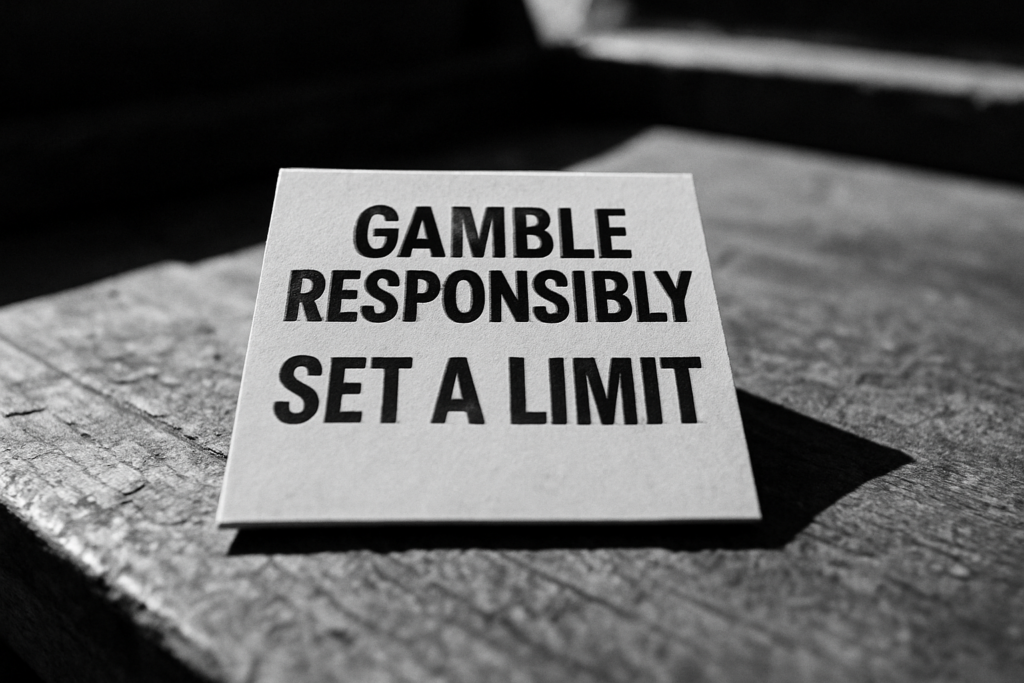Understanding Problem Gambling
Problem gambling extends beyond occasional gaming, disrupting daily life and personal well-being. It’s often difficult to identify initially, but recognition is essential for intervention.
What Is Problem Gambling?
Problem gambling refers to an uncontrollable urge to gamble despite negative financial, emotional, or social consequences. This behavior can manifest in frequent betting, chasing losses, or prioritizing gambling over essential responsibilities. Problem gambling isn’t limited to casinos or sports betting; it includes online gaming and lotteries if they lead to harmful patterns. According to the National Council on Problem Gambling, approximately 1% of adults in the U.S. experience severe gambling disorders.
The Impact of Problem Gambling on Individuals and Families
- Problem gambling can severely harm personal finances, leading to mounting debts or even bankruptcy.
- Emotional stress often accompanies the financial strain, causing anxiety, depression, or feelings of guilt and shame.
- Professional relationships may suffer due to absenteeism or reduced work performance.
- Families experience turmoil as trust diminishes and conflicts increase.
- In some cases, strained relationships may result in separation or estrangement.
- Children may feel neglected or experience emotional distress due to a parent’s gambling behavior.
- Left unaddressed, the cycle of problem gambling exacerbates these issues over time.
Recognizing the Signs of Problem Gambling
Identifying problem gambling requires observing behavioral patterns and the resulting emotional or financial strain. Early detection helps in seeking timely intervention.
Behavioral Indicators
Behavioral shifts often highlight gambling problems. Increased secrecy around finances and activities can suggest an attempt to hide losses. Frequent absences from work or neglecting responsibilities indicate gambling taking precedence over obligations. Borrowing money, selling possessions, or stealing to fund gambling habits shows evident addiction. Repeated failed attempts to stop gambling demonstrate a lack of self-control.
Engagement in gambling, even after significant losses, and chasing losses to recover money intensify financial and emotional distress. Mood swings, irritability, or restlessness when not gambling further signal dependency.
Emotional and Financial Consequences
Problem gambling usually causes:
- stress
- anxiety
- depression
Feelings of guilt or shame over financial losses often harm self-esteem. Social withdrawal, resulting from embarrassment or conflicts with loved ones, isolates individuals further.
Financial repercussions include mounting debts, unpaid bills, and depleted savings. Inability to meet essential expenses, like rent or utility payments, demonstrates the scale of monetary damage. Over time, strained relationships due to financial pressure and emotional turbulence aggravate the issue.
Factors Contributing to Problem Gambling

Various factors play a role in the development of problem gambling. These influences often intertwine, increasing vulnerability and complicating recovery.
Psychological and Social Triggers
Psychological triggers often stem from emotional states or personality traits. Impulsivity, depression, and anxiety are common traits linked to problem gambling. People may gamble to cope with feelings of loneliness or dissatisfaction, using it as a form of escapism. Social triggers, on the other hand, can include cultural norms or peer pressure. Environments that normalize or glorify gambling, such as friend groups or families with similar habits, reinforce the behavior.
Role of Technology in Gambling Addiction
Technology has expanded access to gambling, making it ubiquitous. Online gambling platforms, mobile apps, and digital payment systems have created opportunities to gamble 24/7. Features like live betting and virtual rewards exploit psychological vulnerabilities, increasing the risk of addiction. Social media advertising and targeted promotions further encourage continued engagement, particularly among younger users.
Seeking Help for Problem Gambling
Identifying problem gambling is a critical step, but taking action to address it is even more essential. Various resources and support systems provide guidance and assistance to start the recovery journey.
Professional Support and Therapy Options
Engaging with licensed professionals offers tailored strategies for combating problem gambling. Therapists specializing in behavioral therapy, like Cognitive Behavioral Therapy (CBT), focus on modifying harmful gambling patterns by addressing underlying emotional and psychological triggers. For individuals with co-occurring conditions, like anxiety or depression, integrated treatment plans target both the addiction and mental health issues simultaneously.
Medical professionals may also recommend medication. In some cases, antidepressants or mood stabilizers effectively reduce compulsive urges. Additionally, financial counseling services help individuals regain control over their finances, preventing further damage from gambling-related debt.
Community and Peer Support Groups
Participating in peer support groups connects individuals with others who share similar experiences. Organizations like Gamblers Anonymous (GA) host meetings where members provide mutual encouragement and share coping strategies. Modeled after 12-step programs, GA helps individuals address both the behavioral and emotional aspects of gambling addiction in a structured manner.
Beyond formal groups, community-based initiatives, such as local outreach programs or online forums, extend valuable support. These platforms offer a safe space for members to share their challenges and celebrate recovery milestones. Engaging with these groups often reinforces motivation and reduces the sense of isolation.
Preventing Problem Gambling
Preventing problem gambling involves proactive strategies to reduce risks and encourage healthy habits. Awareness, education, and responsible practices are critical for minimizing gambling-related issues.
Promoting Responsible Gambling Practices
Encouraging responsible gambling ensures individuals maintain control over their actions to avoid harmful consequences. Setting financial and time limits when gambling fosters discipline and prevents overspending. For example, allocating a fixed budget for leisure gambling helps mitigate risks of financial strain. Avoiding gambling while under stress or the influence of substances also promotes better decision-making.
Self-monitoring tools, such as time trackers on gambling apps, offer users a way to stay aware of their activities. Casinos and online platforms can implement features like deposit limits, session timers, or self-exclusion programs to support responsible behavior. I recommend utilizing these options to maintain control over gambling habits.
Raising Awareness and Education
Increasing awareness emphasizes the risks associated with problem gambling and helps detect issues early. Educational campaigns in schools and workplaces can inform people about gambling’s potential harms and warning signs. Offering fact-based information, such as how gambling odds work, dispels myths about winning and reduces overconfidence in risky bets.
Publicizing real-life stories of recovery from gambling addiction highlights the importance of seeking help and inspires others to take action. I believe collaborations between governments, non-profits, and healthcare organizations can expand access to workshops, seminars, and resources tailored for diverse age groups and communities.



 Steven Alfonso – Senior Gambling Analyst
Steven Alfonso serves as the Senior Gambling Analyst at Gamble Wise Roll, bringing a wealth of industry knowledge and analytical expertise to the platform. With a background in gaming economics and market research, Steven delves into the latest trends shaping the gambling world, from emerging skill-based betting opportunities to regulatory shifts and technological advancements. His in-depth reports provide a comprehensive look at how the industry is evolving, offering valuable insights for both casual players and seasoned professionals. Passionate about data-driven decision-making, Steven ensures that Gamble Wise Roll remains at the forefront of industry analysis, helping readers understand the risks, opportunities, and strategies that define modern gambling.
Steven Alfonso – Senior Gambling Analyst
Steven Alfonso serves as the Senior Gambling Analyst at Gamble Wise Roll, bringing a wealth of industry knowledge and analytical expertise to the platform. With a background in gaming economics and market research, Steven delves into the latest trends shaping the gambling world, from emerging skill-based betting opportunities to regulatory shifts and technological advancements. His in-depth reports provide a comprehensive look at how the industry is evolving, offering valuable insights for both casual players and seasoned professionals. Passionate about data-driven decision-making, Steven ensures that Gamble Wise Roll remains at the forefront of industry analysis, helping readers understand the risks, opportunities, and strategies that define modern gambling.
